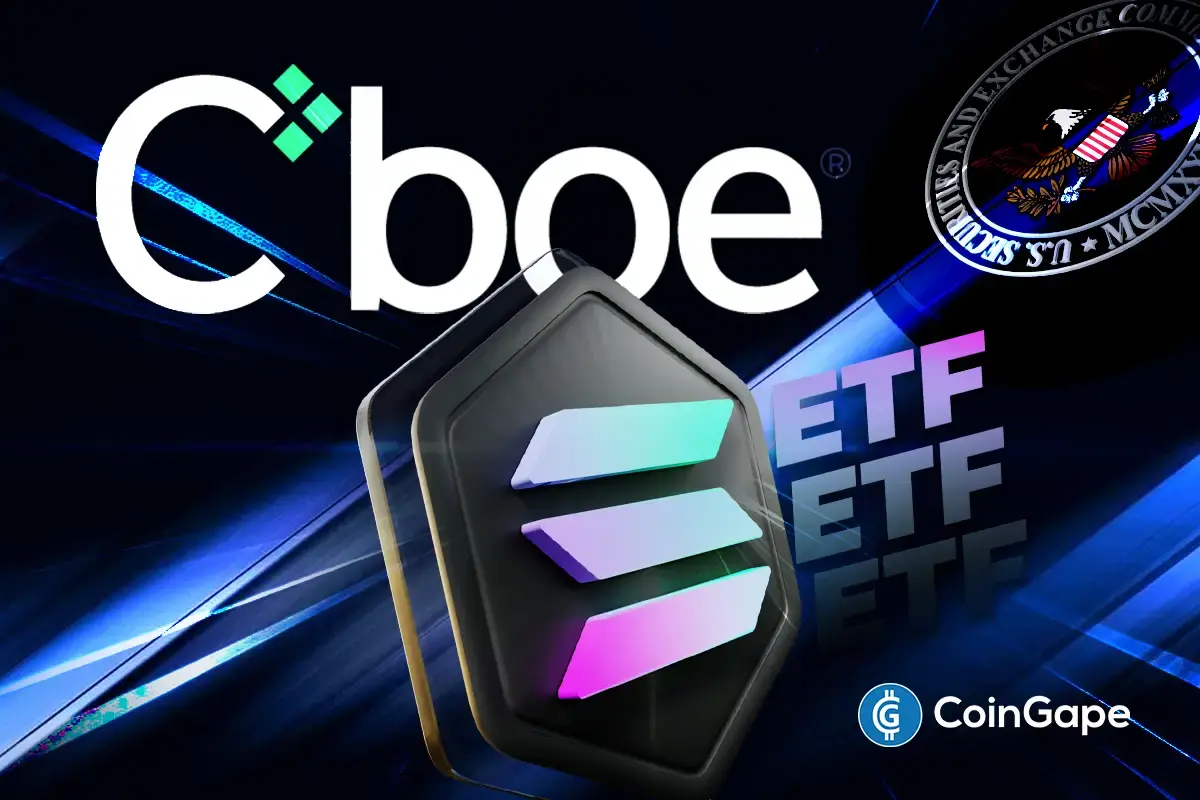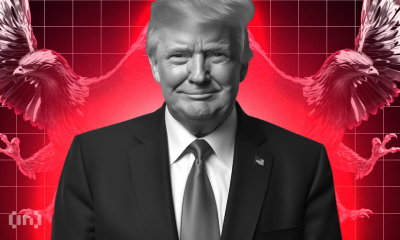Regulation
OpenAI Accused of Illegally Muzzling Employee Concerns

Whistleblowers have filed a complaint with the Securities and Exchange Commission (SEC), accusing OpenAI of unlawfully restricting employees’ reporting of safety concerns.
OpenAI Accused of Illegally Muzzling Employee Concerns
In a whistleblower’s letter, OpenAI is alleged to have given employees, severance, and nondisclosure agreements that are overly oppressive.
These agreements supposedly contained provisions that could lead to consequences if employees complained about OpenAI to the federal regulators.
The letter addressed to the SEC commissioner, was sent earlier this month, stated that OpenAI forced its employees to relinquish their federal rights to whistleblower rewards and to obtain permission from the company before reporting information to federal regulators.
Violation of Federal Whistleblower Protections
The whistleblowers noted that the agreements violated the federal laws that are meant to shield persons who may wish to report corporate fraud and other related vices without revealing their identities, and without fear of being fired.
In addition, another whistleblower, who chose to remain unnamed, highlighted the potential negative impact of such contracts on the employees’ willingness to report the risks of AI technology.
OpenAI spokesperson Hannah Wong said,
“Our whistleblower policy allows employees to make protected disclosures, and we think it is critical to have a serious discussion about this technology; as a result, we have adjusted our departure policies to eliminate nondisparagement clauses.”
Growing Concerns Over AI Safety
The concern was voiced against the backdrop of the transformations OpenAI has gone through in recent years, specifically, concerns regarding the organization’s shift from a nonprofit with the primary focus on people’s well-being to a company that prioritizes profit over safety. Moreover, there are claims that OpenAI released the new model of its AI without following the required safety measures, and this was done hastily.
Subsequently, this has led to concerns about the negative impact of AI, including its use in developing biological weapons or cyber attacks.
Senator Chuck Grassley said,
“OpenAI’s policies and practices seem to deter whistleblowers from reporting and receiving proper remuneration for their protected disclosures.”
Grassley highlighted the role of whistleblowers in assisting the federal government in mitigating risks associated with AI.
Sam Altman’s Stance
According to Coingape, OpenAI CEO Sam Altman had provided clarification on exit agreements in May amid increasing scrutiny.
This comes as several employees resigned from the company, including Jan Leike, who claimed that the company was shifting from AI safety to product development.
OpenAI CEO clarified that a clause in previous exit papers concerning possible equity cancellation was a mistake. In addition, he said that OpenAI has never imposed this clause and reiterated that the vested equity is safe even in case of termination of this agreement.
Read Also: JPMorgan and Wells Fargo In Billions Of Bad Debts, Will Feds Step In
The presented content may include the personal opinion of the author and is subject to market condition. Do your market research before investing in cryptocurrencies. The author or the publication does not hold any responsibility for your personal financial loss.
Regulation
US SEC Acknowledges Fidelity’s Filing for Solana ETF

The U.S. Securities and Exchange Commission (SEC) has formally acknowledged the filing for Fidelity’s spot Solana (SOL) Exchange-Traded Fund (ETF).
This marks a key development in the financial industry, as Fidelity seeks to list its Solana ETF on the Cboe BZX Exchange. The acknowledgment comes after Fidelity submitted a proposed rule change, paving the way for the potential approval of the product.
Fidelity’s Spot Solana ETF Proposal
The SEC’s acknowledgment follows Fidelity’s filing to list and trade shares of the Fidelity Solana Fund under the Cboe BZX Exchange. The proposed rule change, initially submitted on March 25, was later amended on April 1, 2025, to clarify certain points and add additional details.
The amended proposal aims to list the Solana ETF under BZX Rule, which pertains to commodity-based trust shares. According to the Cboe BZX Exchange, Fidelity plans to register the shares with the SEC through a registration statement on Form S-1.
Fidelity’s experience with crypto ETFs, having launched the Fidelity Wise Origin Bitcoin Fund (FBTC) and the Fidelity Ethereum Fund (FETH), has prepared it for this new initiative. FBTC has drawn substantial interest, accumulating nearly $17 billion in assets, while FETH currently manages around $975 million.
This Is A Developing News, Please Check Back For More
Disclaimer: The presented content may include the personal opinion of the author and is subject to market condition. Do your market research before investing in cryptocurrencies. The author or the publication does not hold any responsibility for your personal financial loss.
Regulation
US Senate Banking Committee Approves Paul Atkins Nomination For SEC Chair Role

The U.S. Senate Banking Committee has voted to approve Paul Atkins’ nomination for the role of Chair of the Securities and Exchange Commission (SEC). The vote, which took place on Thursday, passed with a narrow margin of 13-11, along party lines.
Paul Atkins, nominated by President Donald Trump, now moves one step closer to taking over the top regulatory position at the US SEC.
Senate Banking Committee Approves Paul Atkins Nomination
Paul Atkins’ nomination for SEC Chair has received approval despite sharp opposition from Democratic members of the Senate Banking Committee. The vote was entirely split, with Republicans supporting Atkins and all Democrats opposing the decision.
This partisan divide highlights the contentious nature of Atkins’ confirmation, which had been under scrutiny for several reasons.
The committee’s approval now clears the path for Atkins to proceed to the full Senate for a final confirmation vote. Given the Republican-controlled Senate, it is widely expected that Atkins will secure the necessary votes to take over the SEC leadership. With Republicans holding a 53-47 majority in the Senate, the confirmation process is anticipated to move forward swiftly.
This Is A Developing News, Please Check Back For More
Disclaimer: The presented content may include the personal opinion of the author and is subject to market condition. Do your market research before investing in cryptocurrencies. The author or the publication does not hold any responsibility for your personal financial loss.
Regulation
Kraken Obtains Restricted Dealer Registration in Canada

Cryptocurrency exchange Kraken has obtained a Restricted Dealer registration in Canada. The registration comes after completing a pre-registration undertaking (PRU) process with Canadian authorities.
The exchange has also announced the appointment of Cynthia Del Pozo as its new General Manager for North America. Del Pozo will oversee Kraken’s growth initiatives in Canada.
Kraken Completes PRU Process In Canada
Kraken’s Restricted Dealer registration marks the completion of a thorough pre-registration undertaking (PRU) process with Canadian regulators. The registration places Kraken under the supervision of the Ontario Securities Commission (OSC). This oversight ensures users have access to secure crypto products within a properly regulated local ecosystem.
According to the Canadian Securities Administrators (CSA), the Restricted Dealer registration is one of eight firm registration types in Canada. This particular classification is used for firms that “do not quite fit under any other category.” It also comes with specific requirements and conditions set by securities regulators.
Kraken’s regulatory achievement comes during a period of change in the Canadian crypto sector. Just months earlier, competitor Gemini exchange announced its departure from the Canadian exchange market by the end of 2024. This was a move that surprised many and raised questions about cryptocurrency regulation clarity in the country.
Kraken Introduces New Canadian GM
Del Pozo has joined Kraken to lead its Canadian operations as the new General Manager for North America. She has nearly 15 years of experience in corporate development, operations, and fintech consulting. Del Pozo will help to guide Kraken’s expansion across Canada during this important phase of crypto’s development in the region.
“Canada is at a turning point for crypto adoption, with a growing number of investors and institutions recognizing digital assets as a vital part of the financial future. I’m thrilled to join Kraken’s mission at this critical moment, and to lead our expansion efforts, ensuring we continue to serve our clients long-term with innovative and compliant products,” said Del Pozo.
In her role, Del Pozo will focus on strengthening Kraken’s regulatory relationships and also scaling the company’s presence throughout North America.
Del Pozo also commented on the registration achievement: “This Restricted Dealer registration is testament to the high bar Kraken has always set for consumer protection, client service, and robust security. We’re excited to continue expanding our world-class investment platform and to deliver innovative products that provide real-world utility to Canadians.”
The Exchange’s Continued Growth In Canada
Over the past two years, the cryptocurrency exchange has shown steady expansion in Canada while working through the PRU process with regulators. During this period, the exchange has doubled its team size and monthly active users.
According to the official blog post figures, the firm now has more than $2 billion CAD in total client assets under custody. Kraken has also increased support for some of the most popular cryptocurrencies. It provides several CAD spot trading pairs that enable Canadians to trade crypto without paying expensive foreign exchange fees.
According to Innovative Research Group’s 2024 Investor Survey, 30% of Canadian investors currently own or have owned cryptocurrencies. Likewise, a KPMG Canada survey discovered that 30% of Canadian institutional investors now have exposure to cryptocurrencies, which means widespread adoption across investor types.
Disclaimer: The presented content may include the personal opinion of the author and is subject to market condition. Do your market research before investing in cryptocurrencies. The author or the publication does not hold any responsibility for your personal financial loss.
-

 Market22 hours ago
Market22 hours agoBitcoin’s Future After Trump Tariffs
-

 Regulation20 hours ago
Regulation20 hours agoUS Senate Banking Committee Approves Paul Atkins Nomination For SEC Chair Role
-

 Market19 hours ago
Market19 hours agoBinance Managed 94% of All Crypto Airdrops and Staking Rewards
-

 Market24 hours ago
Market24 hours ago10 Altcoins at Risk of Binance Delisting
-

 Market23 hours ago
Market23 hours agoEDGE Goes Live, RSR Added to Roadmap
-

 Market21 hours ago
Market21 hours agoTRUMP Token Hits Record Low Due To Liberation Day Tariffs
-

 Market20 hours ago
Market20 hours agoPi Network Price Falls To Record New Low Amid Weak Inflows
-

 Regulation17 hours ago
Regulation17 hours agoUS SEC Acknowledges Fidelity’s Filing for Solana ETF






















✓ Share: